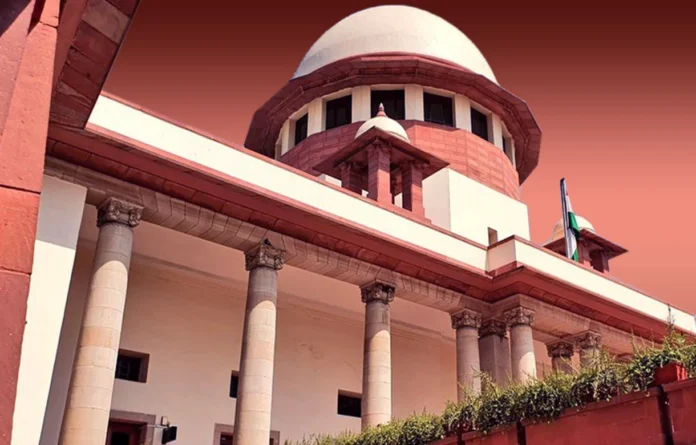The Supreme Court on Tuesday closed a public interest litigation (PIL) raising concerns over the rising incidents of mob lynching, specifically the cases involving ‘cow vigilantes,’ who were indulging in such acts in the name of protecting cows from smuggling and slaughter.
The Bench of Justice BR Gavai and Justice K Vinod Chandran observed that it would not be practical for the Apex Court judges sitting in Delhi to micromanage such issues, when the factors leading to such incidents may differ in different States.
It pointed out that even in petitions challenging demolition of properties of those suspected of criminal offences, it gave liberty for the parties to move competent authorities.
Noting that every State had a different situation, the Apex Court said that in some states, the consumption of beef was a regular thing.
The Apex Court said it had already issued detailed directions to act against incidents of mob lynching in the Tehseen Poonawalla case, which were binding on all authorities. If any such direction was flouted, an aggrieved person has legal remedies to exercise. A competent court could be approached in accordance with law, it added.
The Bench further declined to examine the validity of cow protection laws introduced in various States, stating that the petitioner should approach the High Court of a concerned State on such issues.
It said it would not be correct for this Court to test the validity of 13 different State laws in a generic plea. The specific High Court should be approached in such a case.
The Bench passed the order on a PIL filed by the National Federation of Indian Women over the rising incidents of mob lynching.
Advocate Nizamuddin Pasha, appearing for the Federation, argued that the earlier directions issued by the Court in the matter were being brazenly flouted, particularly with the introduction of cow protection laws in certain States, which have led to mob lynching by ‘cow vigilantes’.
The Counsel further contended that private individuals or agencies were given police powers to seize vehicles and nab people for cattle smuggling.
Noting that these incidents were ultimately criminal acts, the Bench observed that it was the duty of a State to ensure that such things did not happen. The Court could not look into individual cases, it added.
The Counsel contended that the State authorities were following a pattern and themselves refusing to lodge FIRs.
Solicitor General Tushar Mehta submitted that the Union of India has introduced a law under the Bharatiya Nyaya Sanhita for punishment in mob lynching matters.
The bench further refused to lay down uniform criteria for the grant of compensation to the victims of mob lynching incidents on the grounds that the issue ought to be decided on a case-to-case basis.
Laying uniform criteria would mean doing away with the discretion available to the authorities or courts. If a person sustained a simple injury and another was grievously hurt during a mob lynching incident, a uniform compensation direction would prove unjust for them.


